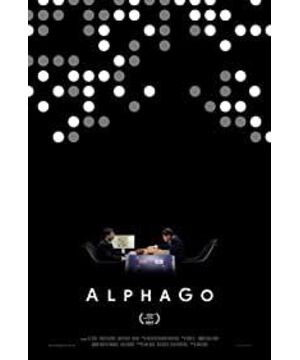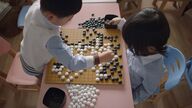Why Go? This is the question that has been lingering in my mind after watching the documentary.
After the news of AlphaGo came out, as a Go layman, I didn’t fully understand it. Now, after watching the documentary, I have a general understanding of the whole situation, including the reasons for the sensation in the industry and the struggles of professional players in the schedule. Everyone spent a lot of time discussing the impact of this incident. What does this early technological breakthrough mean? Before I think about this question, I still have to go back to my original question: Why is Go, among so many human things, the iconic watershed that separates the human brain from the computer?
It has been three years since the first battle between AlphaGo and Lee Sedol. If you watch the whole game carefully and try to understand the logic of Lee Sedol's so-called "God's Hand", you will find that the reason why Go has such a high status is because of it. Full of "humanity". In the eyes of the developers, in the battle game, almost every decision of the two sides can be digitized. We can calculate the winning rate of each step through a certain amount of operations, no matter how huge the operation system is, as long as we can get the best answer , the human brain can be defeated by the computer.
Go is different. The film uses vivid dynamic images to explain the operation of Go. There are countless possibilities after simple rules. In short, this is a game where everything is changing: every move you take The results of chess will change with the layout of the opponent. So for a computer, once it can't guess the opponent's thinking, it means that it can't use the calculation to get its "best answer", which is what makes Go special.
But this problem is simple for humans. The opponent's character, temper, state and pressure at the moment can all become the basis for judging the chess path. We can even strengthen this skill through continuous training. This skill is called human. It's called "emotional intelligence". Although it seems that high IQ and memory are required to play this kind of brain-intensive game well, the real test is a person's overall control and coordination ability. On the plane, you need to control the pieces in each area of the chessboard. In addition, you also need to anticipate the direction of the entire time axis. In this three-dimensional concept, intentionally or unintentionally, each choice makes the chess path itself an interpretation of the individual character.
Predicting chess moves is so difficult, not to mention that humans have more strategies. We know that victory often requires sacrifice and patience, so on top of the character factor, we have thousands of ways to win in various chess and tactics. This allows the brain to have a more complex calculation method, which not only takes into account the strategy on the chessboard, but also incorporates much more "reference values" into the calculation formula than the computer.
The reason why a computer program makes people feel "cold" is because it has not covered a wide enough range of calculation parameters. The program only knows to follow the existing formula to calculate. Such calculation results are a bit rigid. In contrast, we call it The calculation results of the human brain, which is called "intuition", are much more flexible. And what makes us even more proud is that such a huge calculation volume only takes a few seconds.
But it’s different now. AlphaGo’s three-layer neural network is flexible enough. After defeating Ke Jie’s Master version and sweeping professional chess players, some people commented that “it looks very human”, which means that such a calculation method has almost It completely simulates the computing volume of the human brain, even surpassing us.
In Li Shishi's third game, he used a special chess path to "deceive" the computer and finally won. Later analysis repeatedly emphasized Li Shishi's 78th move, which was only 7/100,000 under the program calculation. The probability of , so the computer game can't predict it. In the second day of the game, AlphaGo was almost learning and using it now. The layout in the early stage was quite "biased". No one understood what the computer wanted to do. When there is a bug, the program wins beautifully.
Here is a detail. After almost securing the victory, AlphaGo took a "slow hand". The backstage data team said that it was not a misjudgment. It knew very well that this was not a wise move at this point in time, and the computer just walked like this. Invalid step. It's really scary to think about, do you think it seems to have something emotional in addition to the cold calculation - yesterday's loss to you was an accident, today I'm going to beat you the same way, and you have to do it anyway. If you lose, take a few steps of useless idle chess to play with you.
Not only is the super-fast learning ability amazing, but the slightly arrogant attitude here makes people chill. Knowing how to "feint attack", know how to "backhand", learn to think calmly in a tense game, and know how to use some methods to confuse opponents to hide themselves, these things are no longer exclusive to the human brain.
The reason why the culture of Go can even be extended to the field of philosophy is that we cannot explain the beauty of this game process, and we can only use the word "humanity" to encompass it and appreciate it. But the scary thing is that now the computer program also has human nature in the war with human beings. It is no longer the computing method that only knows how to take the lead. After this game, it has learned to sacrifice and hide, and slowly, Maybe it can also have its own "character"? And the scariest part is this: Will it one day use hidden strategies beyond the chessboard? The only game that Lee Sedol defeated AlphaGo was human wisdom? Or is it intentional by AI?
View more about AlphaGo reviews








